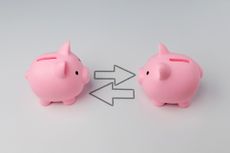Investing
News, insights and expert analysis on investing from the team at Kiplinger.
Explore Investing
Latest
-

Want to Divorce the IRS? This is How to Go About It (Legally)
With some careful planning focused on the standard deduction, retirees who have large sums in tax-deferred accounts can avoid unpleasant tax bills and even part ways with the IRS for good.
By Joe F. Schmitz Jr., CFP®, ChFC®, CKA®
-

9 Ways the Wealthy Waste Thousands in Taxes — And 9 Remedies
The tax code contains plenty of legitimate ways for the wealthy and business owners to cut taxes. Use this checklist to minimize taxes and stay compliant.
By Travis Babb, CFP®, EA
-

Farmers Brace for Another Rough Year
The Kiplinger Letter The agriculture sector has been plagued by low commodity prices and is facing an uncertain trade outlook.
By Matthew Housiaux
The Kiplinger Letter -

Warren Buffett Stocks: A Look at Berkshire Hathaway's Holdings
Warren Buffett's holdings are a diverse set of blue chips and lesser-known growth bets. Here, we are the stocks included among Berkshire Hathaway's holdings.
By Dan Burrows
-

Stocks Drop as Iran Worries Ramp Up: Stock Market Today
President Trump said he will decide within the next 10 days whether or not the U.S. will launch military strikes against Iran.
By Karee Venema
-

5 Silver ETFs to Buy Now
commodities Often called gold's "crazy cousin" because of its volatility, the best silver ETFs offer efficient exposure to upside price action for the precious metal.
By Kyle Woodley
commodities -

Earnings Calendar and Analysis for This Week
stocks Check out our earnings calendar for this week, as well as our previews and recaps of the more noteworthy reports.
By Karee Venema
stocks -

How to Choose Between Look-Alike ETFs and Mutual Funds
If you're trying to choose between ETFs and mutual funds, some factors to help you decide are how you trade and the type of account you plan to use.
By Nellie S. Huang
-

5 Investing Rules You Can Steal From Millennials
Millennials are reshaping the investing landscape. See how the tech-savvy generation is approaching capital markets – and the strategies you can take from them.
By Coryanne Hicks
